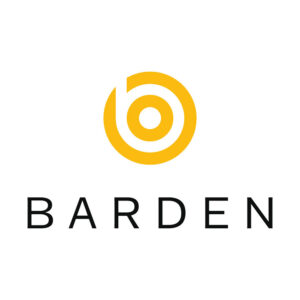Moving abroad to live and work requires significant thought, not to mention resources, and you’d be foolish not to give the move and its impact on your career proper consideration before purchasing your plane ticket.
That’s why we recently joined together with CASSI to bring you a webinar for trainee and recently qualified accountants considering a move to Australia, Canada, Cayman or the UK, with the aim of giving you THE best advice about moving abroad after you qualify.
Here Brian O’Connor ACA, Senior Associate with Barden and expert in recently qualified accountants careers, spoke with Lisa Hughes ACA, Team Lead with Barden and expert in Recently Qualified Accountants who shares THE best advice when moving to Australia.
First off, how did you get your insights into the Australian market?
I spoke with Keith Ryan who works in TOM Executive in Sydney, where I worked myself a few years back. TOM Executive have helped a huge number of Irish accountants over the years.
What is the market ACTUALLY like in Australia at the moment?
In Australia, the market is booming, as the borders have opened up and this has allowed for an influx of ex-pats who are highly skilled and immediately available. Prior to the borders opening, it was a candidate short market in terms of high calibre candidates. This can still be seen today, but equally there are significant recruitment efforts being put in by large-medium organisations. As we now approach year-end in Australia (June 2022), a lot more roles will become available which suit the 417 visa holders i.e. your typical year-end contracting roles in Group Finance.
What kind of roles do qualified accountants typically move into when they go to Australia?
The typical roles which the team In TOM is currently placing 417 visa holders into include: Financial Accountant, Financial Analyst, Senior Financial Accountant, Finance Business Partner, Management Accountant. Depending on industry preference, these roles exist right across the Financial Services and Commerce/Industry sectors. Depending on the time of year when a visa holder arrives, this can also play a part in the type of role they will go into e.g., as noted above, it is now going into year-end reporting season and there will be a lot of contract positions within Group Finance.
Do people typically take on permanent or contract jobs when they move over?
Typically, candidates will arrive on a 417 working holiday visa, which means they do not have permanent working rights, but rather have temporary working rights, and this means they will typically secure 3-6 month contracting roles. If a candidate is fortunate enough to be sponsored, they will switch onto the 482 temporary skills visa and will be offered a permanent position within that particular company.
Is there anything from a VISA point of view that I should be aware of?
Over the past year, it has been evident that the 417 WHV has taken a lot longer to be processed and granted. In some cases, it’s taken people up to 5 months before they receive the official grant, but for others it has come back instantly or within a couple of weeks. Keith’s advice for anyone thinking about moving to Australia would be to get the 417 WHV as far in advance as possible and then consider the date you would like to move over. The visa should stand for 1 year before you have to enter Australia and the 12 months will begin from the point of entry.
The structure of a normal 417 visa is as follows:
A candidate can work up to 6 months with one company and if in that time, sponsorship has not been made available through the 482 temporary skills visa, the candidate must move on and secure another contract position for the remainder of their visa. If by roughly 10 months into the visa, a candidate is yet to secure sponsorship, they will need to consider doing the Australian Farm work (this is for 3 months) to secure the 2nd year 417 visa. For more info please refer to this link.
For 2022, however, the government has waived the 6 month rule and is allowing 417 visa holders to work within one company for the entirety of 2022. Obviously, now that we are in April, if someone were to arrive and start mid-April, they would be able to work for 8.5 months in the one company. It is yet to be confirmed if this will be extended into 2023. For more info please refer to this link.
Should I try to get a job before I move over or when I arrive? How long does it usually take to get a job in Australia?
This is all down to personal preference. A lot of people want to arrive with the job security straight off the bat, whereas some people are keen to do a little bit of travel first and then settle in to looking for a job. Since the borders opened back up, the team in TOM Executive has assisted a number of 417 visa holders with securing a job before they arrived. In some instances, the employers were even happy to give them a couple of weeks to settle into life down under before starting.
The typical turn around for getting a job would roughly be 1 – 3 weeks, depending on the avenues you go down. For example:
- If you work with a recruiter, they will have direct access to the hiring managers and are able to represent your profile and highlight why you would be a great fit for the position. Turnaround from this point can be anything from 1 – 2 weeks, based on the level of interviews required for the position.
- If you were to try and apply directly from home, a lot of companies will not consider CVs simply because of them not having a guarantee that you’ll be able to arrive In Australia. Your CV submission could also potentially be in a pool of up to 50 – 200 other candidates and therefore your CV may not be spotted amongst all of the others!
- When you arrive, and if you’re yet to secure a job, it can roughly take 1 – 3 weeks to get a role. This can depend on whether you use a recruiter or you apply to roles through the jobs website over in Australia.
What is the likelihood of sponsorship if you wanted to stay for more than one year?
Sponsorship is still one of those things that is up in the air. It’s very rare to get sponsorship straight off the bat, as employers can only tell so much from an interview and they ideally would like to work with you for a period of time before committing to sponsorship. That’s not to say that people aren’t being sponsored, because for those high calibre people who have proven themselves in the initial few months of their contract, companies will not want to lose them. The hesitation from employers to sponsor is still around the actual cost to sponsor, as well as pressure on them to hire locally. To be sponsored, a company must advertise a position for up to one month and prove to the government that no local hires could fit the requirements.
What experience is seen as being particularly valuable for companies taking on qualified accountants moving to Australia? Is experience outside practice useful?
Big 4/Top 10 or similar training contract is the type of experience hiring managers look for. They understand that this is a fantastic training environment with high pressure situations. However, if someone does have that 1 year of experience outside of practice, it’s definitely desirable as it shows ability to hit the ground running.
Aside from the experience factor, candidates who are trying to up-skill across different areas like data visualisation tools, SQL knowledge etc., – will always stand out from the crowd.
What is the average pay rate for a recently qualified accountant in Australia?
Generally speaking, for a newly qualified accountant making their first move out of the Big 4 or a similar graduate program, they can expect to come in at the level of a Financial Accountant, Financial Analyst or Management Accountant. They can expect anywhere from $95k base – $110k base + Superannuation* (all depending on the size of the company, the industry etc.).
For those who may have 1 year experience outside of a graduate program, typically you could still fit into the above role categories, or you can expect to be on the ‘Senior’ end of these positions. Salaries can vary from $105k base – $120k base + Superannuation.
*Superannuation is the pension scheme in Australia and all employees are required to contribute to the fund. Right now the rate is set at 10%, but can vary based on company to company.
What 3 tips would you give to a recently qualified accountant looking to relocate to Australia from Ireland?
- Differentiate yourself from every other newly qualified accountant, on your CV, if you are from an audit background, do not just note down that you’re experienced across the end-to-end audit of financial statements. Yes, this may be true, but you do so much more in your role which you can include in your CV to attract potential employers e.g. you might perform variance analysis across the P/L and BS of a company to understand the movements. You can document walkthroughs of significant accounts to understand the internal controls. You may have applied technical accounting knowledge to understand certain transactions or acquisitions which the company has made etc.
- Interview preparation: Just showing up and thinking you will get the job because you’re a Chartered Accountant and you’re able to “chat away” is not the approach to take. Know your CV inside out and have your research done about the company, at a minimum. Also, don’t forget the basics of accounting! You’d be surprised how many Big 4 first movers forget how to account for an Accrual or Prepayment, or can’t even explain what they are.
- Be open to different options which are provided. Yes, you may want your career to go down a certain path, but equally, at this young stage of your career, you don’t want to pigeon hole yourself into a particular industry/accounting and finance role, unless you’re certain that in 5 – 10 years’ time, that is where you want to be in your career. Enjoy the journey in Australia and remember that it’s a working HOLIDAY visa. The experience you’ll gain over the next year or so will stand to you very well if you ever return back home to Ireland.
If you’d like to learn more about moving to Sydney, TOM Executive are hosting an information evening on Thursday 14th April in Chaplins Bar, Hawkins Street, Dublin. For further info about the event see here.
If you would like to get in touch with the TOM Executive team you can do so at:
Keith Ryan – keith.ryan@tomexecutive.com
Shane O’Hara shane.ohara@tomexecutive.com
Himali Gurung – himali.gurung@tomexecutive.com
About Lisa
Lisa Hughes ACA is a Team Lead and expert in recently qualified accounting careers. She leads our Recently Qualified Accountant team in Dublin. Prior to joining us she completed a Bachelor of Science in Finance (BSc Finance) in UCC, gained her ACA qualification through training with KPMG and went on to complete a Diploma in IFRS from Chartered Accountants Ireland.
She qualified as a Chartered Accountant in 2015 and completed her training contract in KPMG‘s financial services audit department, working predominantly on aircraft leasing clients and advisory assignments.
In 2018 Lisa took a sabbatical from Barden and spent the 9 months travelling and working in Australia and New Zealand. During her time in Australia, Lisa was a Specialist Recruiter in commerce, industry, audit, risk and compliance with T+O+M Executive, one of Sydney’s leading specialist recruitment firms.
Contact Lisa at lisa.hughes@barden.ie or via LinkedIn.


 Jump Back
Jump Back

